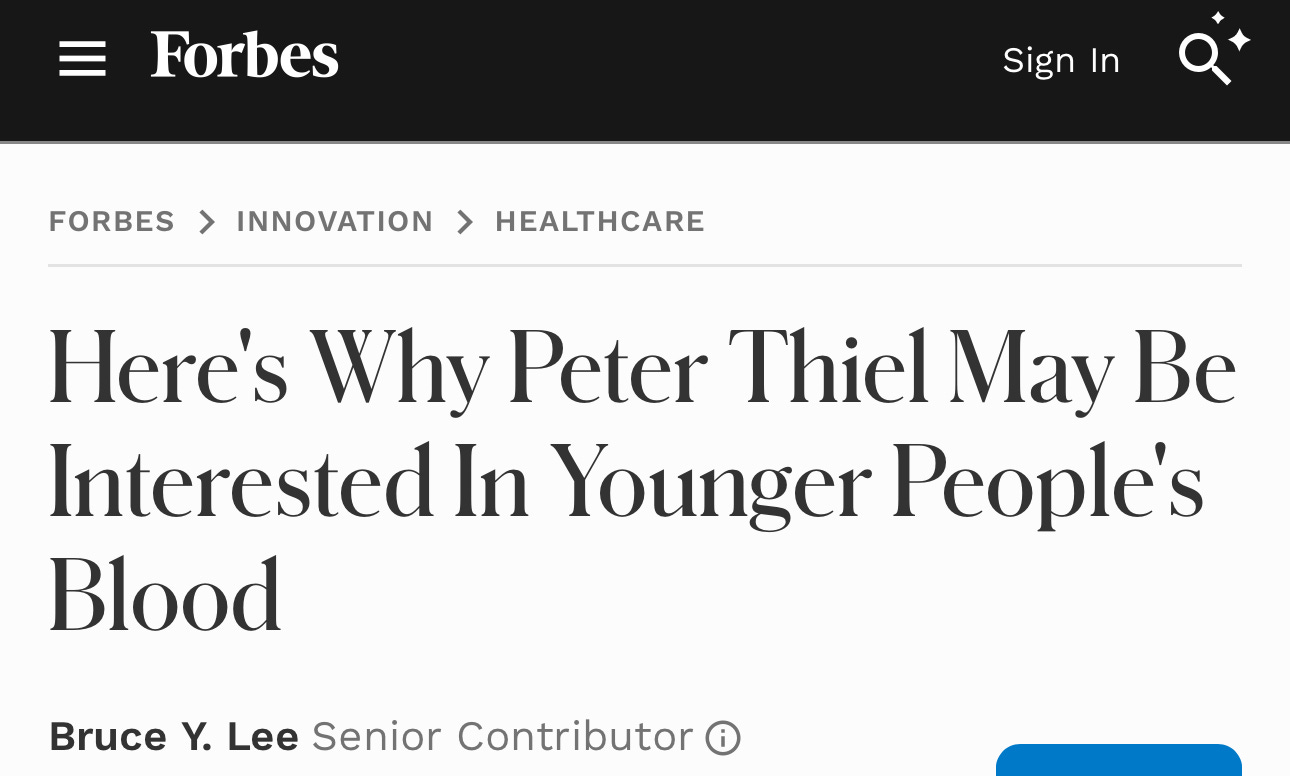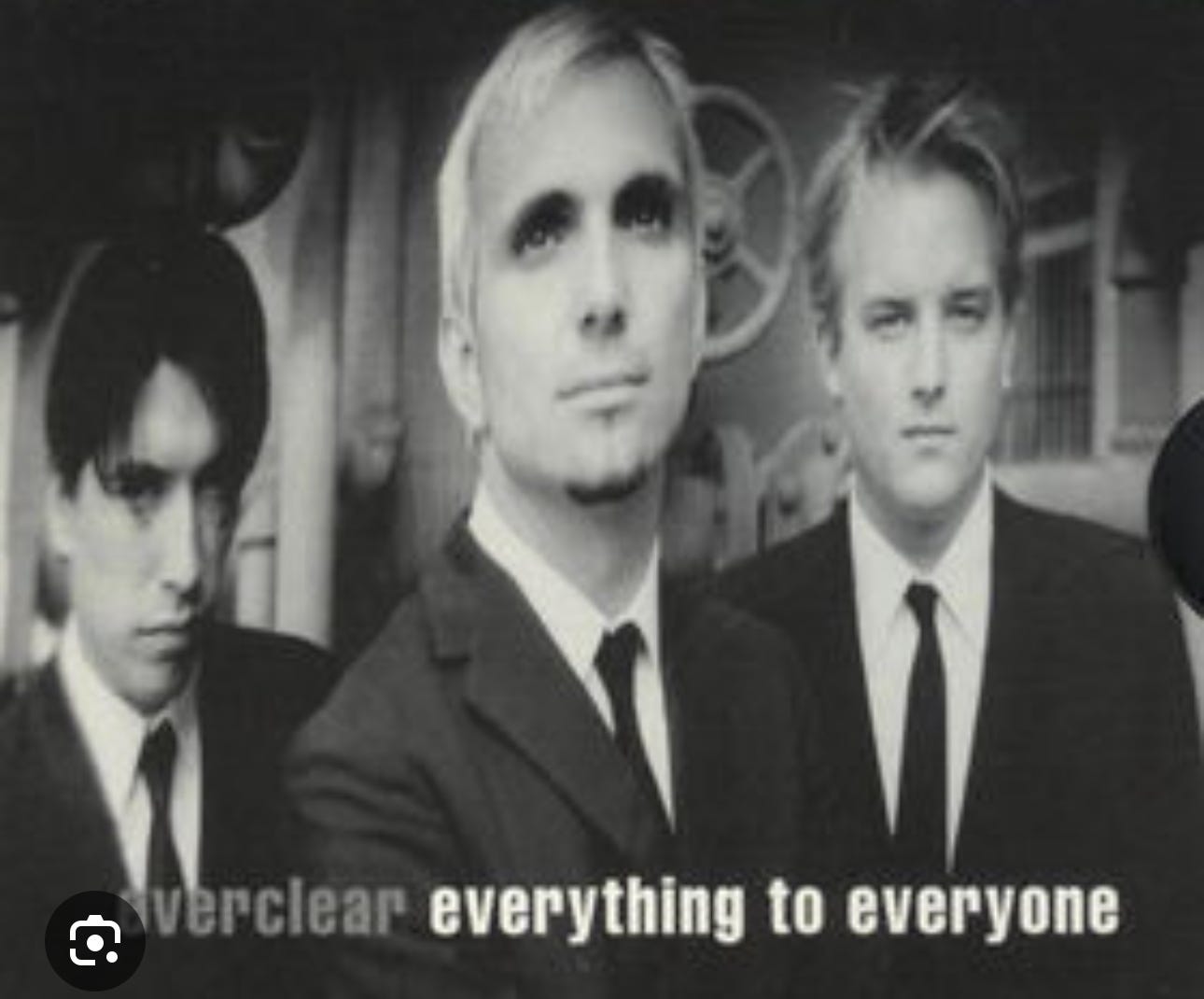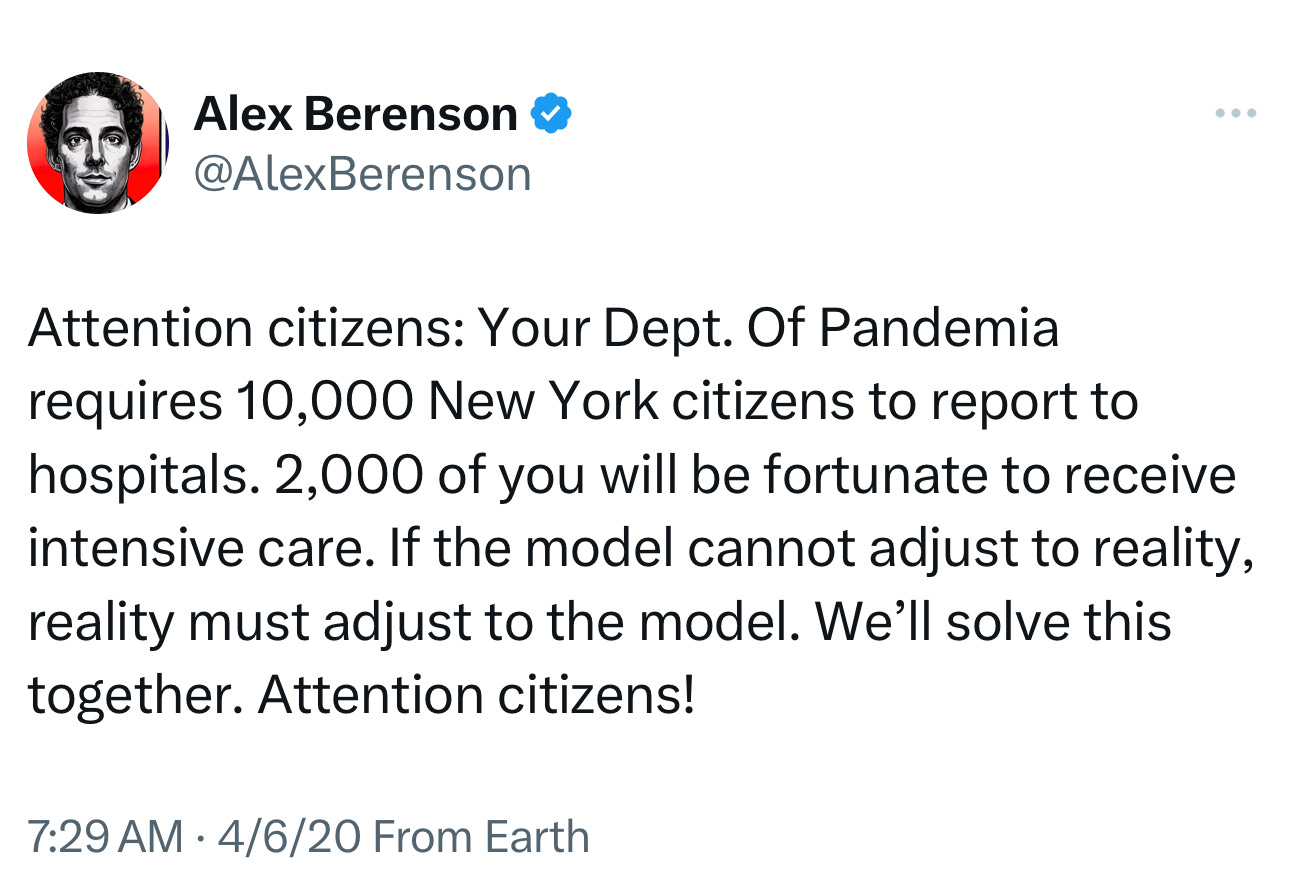On the problem of JD Vance (PART 2)
We all make and remake our own stories, politicians most of all. But Vance's reinvention never seems to end.
In 2016, JD Vance stood strong against Donald Trump.
Vance called Trump “an idiot” on Twitter. He wrote that Trump was “cultural heroin” (in the Atlantic, no less).
And he told NPR, “If I feel like Trump has a really good chance of winning, I might have to hold my nose and vote for Hillary Clinton.”
Donald Trump hasn’t changed since 2016. JD Vance has.
Or has he?
—
(Join Unreported Truths. For the truths you don’t like, and the ones you do.)
—
Last week, I wrote about the reasons I disagreed with Vance’s view that the United States is more a place than a idea.
A lot of you didn’t agree, or felt I’d misunderstood or mischaracterized Vance’s views - as one reader eloquently explained in an email to me which became this article1.
But as interesting than Vance’s views is the question of who he is - and how his biography intersects with his views.
On paper, Vance has an amazing story to tell: he rose from poverty to Yale Law School, wrote a best-selling book and won a Senate race, all before he turned 40. Now he is an intellectual force behind the effort to make the Republican Party into a more populist and nationalist force that explicitly stands against elite cultural values.
And yet.
Over the last decade, Vance’s most powerful backer was Peter Thiel.
Thiel cofounded PayPal and was a very early investor in Facebook. He’s worth $10 billion, give or take, according to the Bloomberg Billionaires Index (yes, that’s a thing). He’s a good friend to have, if you like your friends rich and very well connected.
Thiel’s also a caricature of the Silicon Valley elite. He’s a German-born gay libertarian who wants to live forever and has had to deny publicly that he receives “vampire infusions” - that is, blood directly from young people.
In 2012, Thiel spent millions supporting Ron Paul’s presidential campaign. He also co-founded Palantir, which makes the software behind the surveillance state. (Freedom is for me, not for thee!)
—
(Hey, he said he wasn’t! Good enough for me. And JD.)
—
Which is all fine. Peter Thiel is entitled to spend his billions however he likes. It’s a free country.
Except…
Does Peter Thiel sound like the guy who would have put JD Vance on the road to a working-class, anti-cultural elite American populism? The last time I checked, the rich should live forever on the blood of the young was not a populist credo.
Then again: Vance went to Yale Law School, where he met his wife, Usha. Who comes from the little-known Southern California Indian-American elite branch of Appalachia.
Which, again, is fine. The heart wants what the heart wants.
Except…
It’s very easy to draw a straight line from the JD Vance who went to Yale Law School and became Peter Thiel’s bright young thing and married Usha Chilukuri to the JD Vance who hated Donald Trump enough to write for the Atlantic and consider voting for Hillary Clinton.
That’s a guy who worked hard, made good, became the most credentialist of credentialists. A guy who went to law school and decided he didn’t want to be a corporate law drone, he would go out to Silicon Valley.
It’s even easy to find Hillbilly Elegy in there; the book is the story of a man wants to explain how he - with the help of his grandparents - beat the odds.
But JD Vance didn’t stop there.
Despite his success, he turned around and rejected the same elite he had worked so hard to join. Sort of. As the Washington Post reported:
When Vance returned to Yale in 2017 to give a talk about “Hillbilly Elegy,” he spent much of the half-hour speech discussing how the university introduced him to America’s ruling upper class, said Christopher Cappello, a student who attended. Cappello was jarred, he said, by the way Vance distanced himself from so-called elites, while adopting their mannerisms and dress. The talk was held in a snazzy ballroom, and most everyone was wearing boat shoes and blazers, Cappello said.
“The ease with which Vance presented himself in that setting made clear, despite the difficulties he was describing, that he had very successfully assimilated,” Cappello said. “He gave off this impression: He wanted to be everything to everybody.”
—
(Betraying my Gen X roots)
—
In 2016, Republicans could still see Donald Trump as an aberration.
By 2020, he had been President for four years, and despite his loss and the mess of Jan. 6, he had stronger control over the Republican base and party than ever. Ron DeSantis, the governor of Florida, had a great claim to be Trump’s heir. DeSantis had stood to up to the Covid authoritarians. But he didn’t come close to dislodging Trump.
The only way to rise in the Republican Party was to take the knee for the Donald. And JD Vance did. Just as he had with Peter Thiel. Fatherless JD Vance, so clever, so good at connecting with powerful men.
Along the way he made a bunch of comments that are both distasteful and damaging politically, especially on women’s and family issues.
I’m not talking about abortion, though I think he’s wrong on it. I made my views on the topic clear two years ago: abortion is murder and it must be legal. And abortion is clearly a losing issue for the Republican Party; it is probably the strongest political issue the Democrats have.
But abortion is a matter of conscience. If Vance truly believes it should be outlawed, as he has said, and is willing to take the political hit, then so be it.
Insulting “childless cat ladies,” however, is not a matter of conscience. It’s just rude. It’s the kind of nonsense I might get up to on X, but I’m not running for national office.
—
(This could and would be used against me, I suspect)
—
Suggesting that people should have more votes if they have more kids is… just weird. Even as a trial balloon, it’s beneath a serious thinker.
The truth is that as a father I have great sympathy for anyone - male or female - who is childless, either by choice or because they couldn’t have kids. These folks have no idea what they’re missing, and there is no way to explain it to them. That’s the great secret of parenthood. And so mocking the childless is silly. And mean.
—
(Subscribe BECAUSE you don’t like it.)
—
So who’s the real JD Vance?
The guy who clawed his way up the ladder to Yale Law and wrote thoughtful emails to his lesbian friend there? The guy who said he “hate[d] the police”?
Or the guy who pokes at childless women for kicks?
Is Vance really this angry? Because, believe me, I get it. The same people who look down on him look down on me2. And I know how easy it is to want to lash out in answer. Though doing so does no good, which is why I default to satire as a response.
Or is Vance just pretending to be this angry in order to have a chance to be vice-president of a 78-year-old man who is limited to one more term?
Do you have the answer? Because I don’t.
And I don’t know which scares me more.
You made this piece among the most favorited and commented-on bits of writing on Unreported Truths in years. Which maybe should tell me something…
Unlike Vance, I grew up with them, I went to a fancy New York City prep school and then Yale. I’m not sure if that makes the schism less or more painful.






Enough already. You’re beating a dead horse on Vance.
The world is on fire! Might there be something else to dive into here, like the socialist far left VP pick for Harris?
As a person who did grow up in a poor rural community, and then left it to attend a state university (commuting several years of that to save money), and then an Ivy League law school, I relate to the very real conflicts with which JD Vance wrestles. You work hard to "leave it behind" and then when you get to the shining city of success, you realize that the people you left behind were kinder and more rich in spirit and in faith (despite their daily troubles), than those who seemingly "have it all". You experience some real cognitive dissonance, and you have to come to terms with it. It doesn't mean that you want to live back in the town that you came from, because you are no longer the person who lived there, but it does give you a different perspective in the rearview mirror than you had when you were solely looking out the windshield to the horizon. You can still be frustrated that people get in a slump, and still recognize that not all of it is their own making. It's actually not that far off from those who work for the homeless in the urban centers--often one might feel frustration that those in need can't seem to stop making their lives worse by their choices, but one still feels compelled to try to help them "one more time" because one realizes that not ALL of it is within their control.
Similarly, one can also say "I dislike everything about Trump's personal life, speech patterns, and personality, but still think that he has the best policies and therefore feel the need to support him." They are really two sides of the same coin, Vance's conflicts over his community and his conflicts over Trump.If you've never experienced these wholly diverging life experiences, it's hard to understand. I think your piece reflects, frankly, less about JD Vance than it does, perhaps, about your more insulated life. That's not a knock on you--we each live the life we've lived, but perhaps you might want to ponder these points a bit.